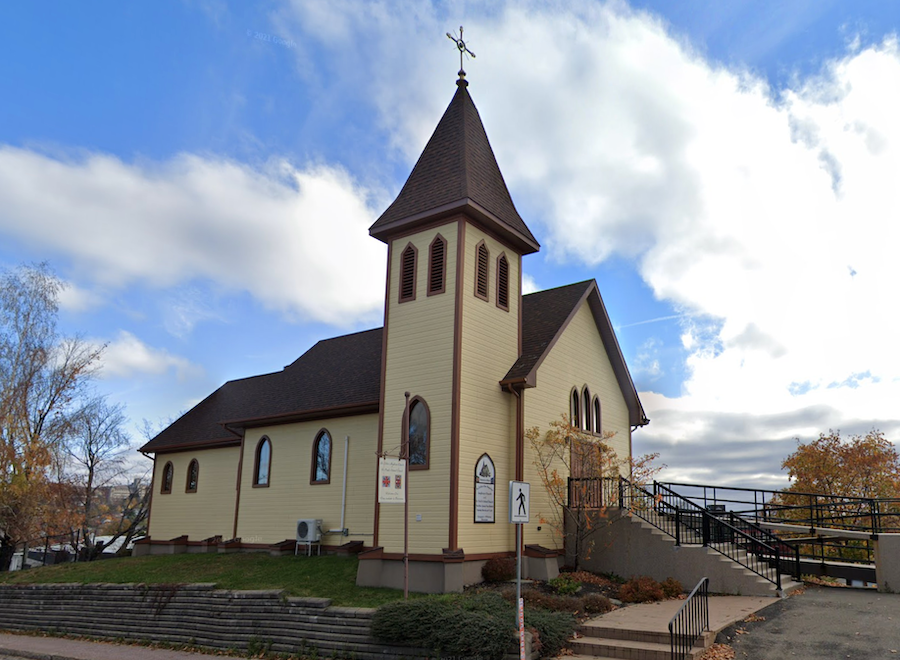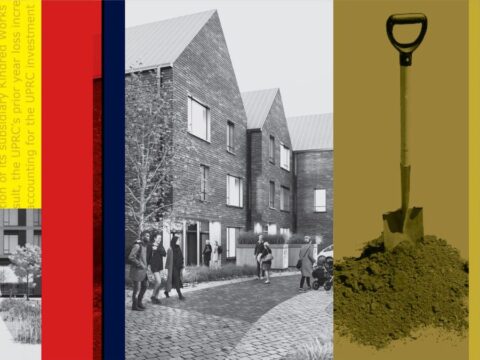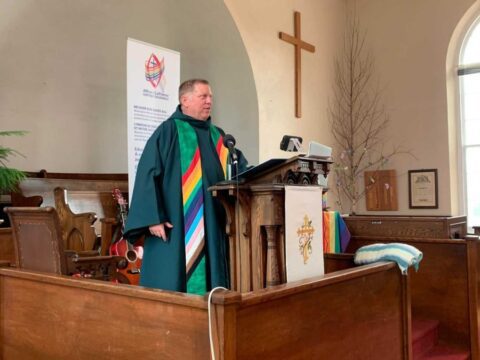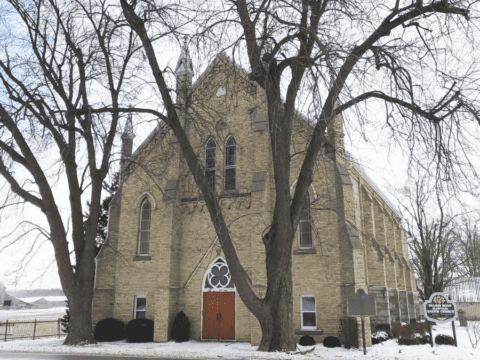Canada and the United States are divided along many lines, but among the haziest of those lines are the geographic ones. We’re very close, our two countries. Many communities straddle borders, with family and friends on both sides.
Since the election of Donald Trump, that closeness has been strained — talks of Canada becoming the 51st state, tariffs and the heightening of dismaying political rhetoric whose potential consequences are unknown. In the midst of that, there are churches sitting close to those dividing lines. These are some of their stories.
You may unsubscribe from any of our newsletters at any time.
Trinity Community Lutheran Church, Point Roberts, Wash.
Point Roberts is a 12.6-square-kilometre, 1,200–resident peninsula in Washington State. It’s bordered by Canada to the north and water on three sides, completely cut off from the mainland U.S. This happened either through administrative error as the border was drawn or purposefully to maintain U.S. access to valuable salmon fishing territory. These days, Point Roberts’s economy relies on tourism and cross-border shopping.
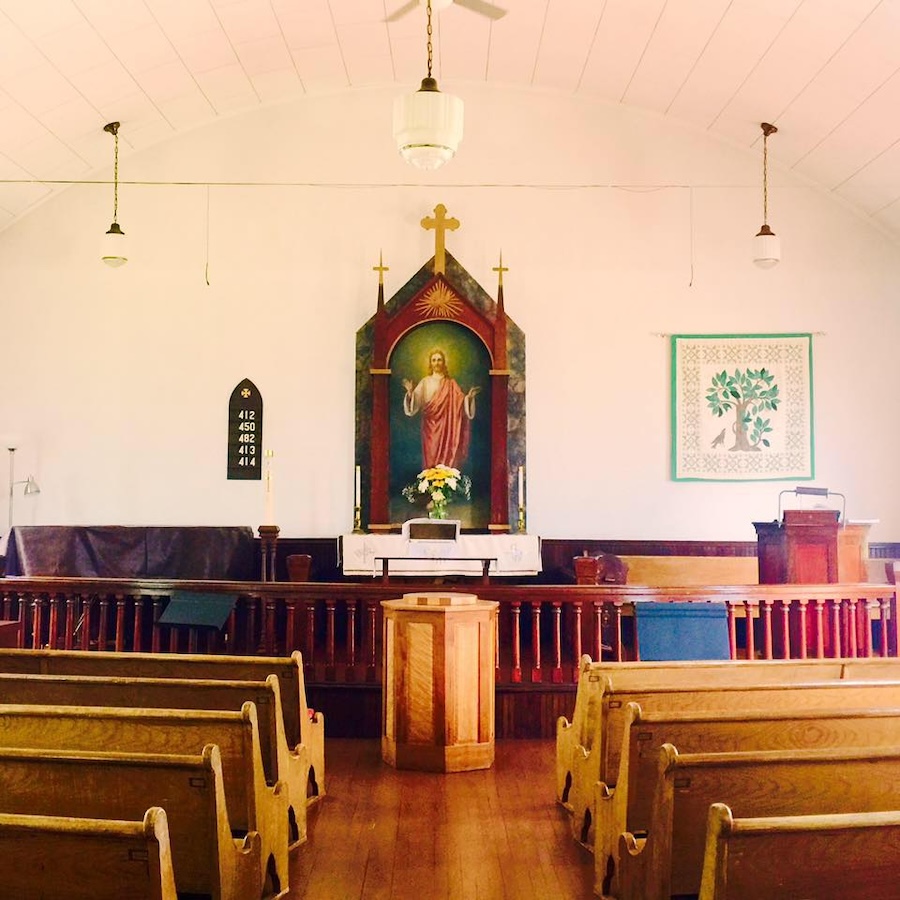
Things changed when COVID hit. “We were locked up for a year and a half,” says Louise Cassidy, church administrator for Trinity. “It was very hard and very lonely.” It broke people’s habits of crossing the border, and many stopped coming for good. The economy still hasn’t recovered, but it is now bracing for the possible impacts of tariffs — their water comes from B.C., their electricity is drawn from Canadian wires, and all their goods have to travel through Canada.
More on Broadview:
Most Point Roberts residents are dual citizens. The grocery store cash drawers carry both currencies. The church congregation is split 50/50 between Americans and Canadians. They try to keep politics out of the services. “We’ve always been that way,” says Cassidy. “It’s weird to be such a family here on the border and have people outside fighting about it. When we’re coming together in worship, we’re there to be together, and that’s where we want to focus.”
Emmanuel United Church, Sault Ste. Marie, Ont.
Sault Ste. Marie, Ont., and Sault Ste. Marie, Mich., were once one place. Divided now by the international border along St. Mary’s River, they still feel like one place. “I can literally see Michigan from my front lawn,” says Rev. Nancy Ferguson. “When I look across, I think it’s just a narrow channel that divides us. But it’s a whole culture that divides us.”
As an Affirming ministry, Ferguson has found Emmanuel become a haven for those on the U.S. side who are feeling disenfranchised — about a dozen folk, largely LGBTQIA+, are joining either the church’s closed Facebook group or in-person services, looking for a safe space. The community is holding its breath, waiting to see how bad things might get. “We’re trying to be good neighbours, be caring and compassionate, and true to who we are.”

How do you create a ministerial climate where people can be renewed and restored under the current circumstances? “You have to walk carefully,” says Ferguson. “We want to acknowledge the constant level of high stress we’ve been under for years. But from a pastoral perspective, I don’t want to add more stress.”
St. John the Baptist Anglican Church, Edmunston, N.B.
Rev. Canon Fran Bedell lives in Madawaska, Maine. She crosses the border every Sunday to lead worship at St. John the Baptist in Edmunston. To her, a sense of disconnect crept in before the election. “I think the change started with COVID,” she says. “When the border closed, some people didn’t go inside the church for almost two years. I think that interrupts a sense of community.”
The election hasn’t destroyed the good feelings of community in the congregation, but it’s been painful for people. “It’s almost like antagonistic feelings are being forced upon us,” says Bedell. Occasionally, when she crosses the border to go to church, a customs officer will ask if she doesn’t have a church in her own country — not with any animosity, she thinks. They’re caught up in the whole thing, too.
Bedell leaves space in services for people to talk about how they’re feeling, but has pulled back on expressing her own political opinions to give people space and ownership over their own thoughts. And she still sees the good. “I find my gratitude in today and not focusing too much on the future because it’s so uncertain. I think we’re in for a lot more unhappiness before things smooth out. But each one of us has more blessings than we realize.”
***
Kate Spencer is a writer in Halifax.

